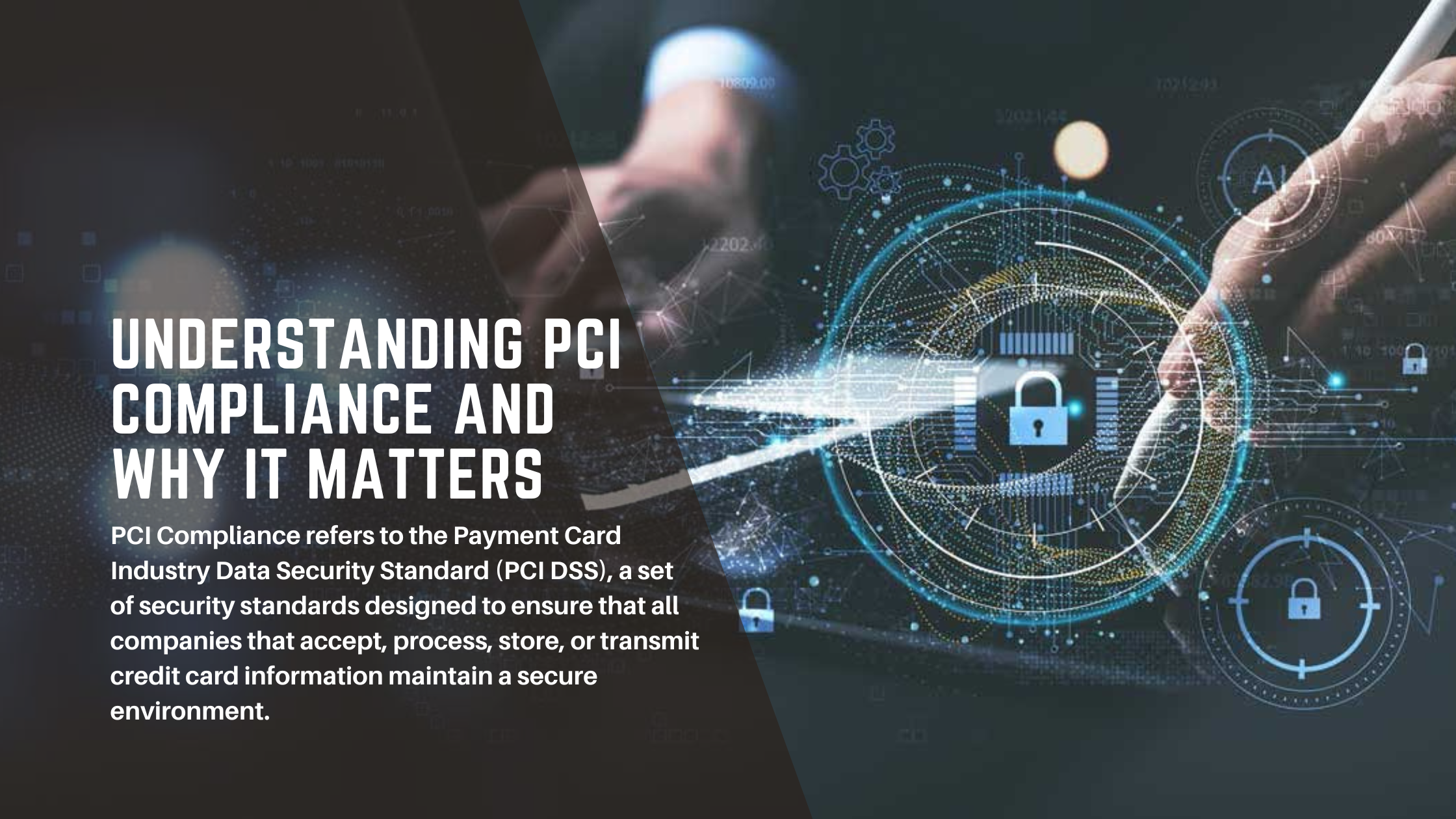
Understanding PCI Compliance and Why It Matters
What is PCI Compliance?
PCI Compliance refers to the Payment Card Industry Data Security Standard (PCI DSS), a set of security standards designed to ensure that all companies that accept, process, store, or transmit credit card information maintain a secure environment. Established by major credit card brands like Visa, MasterCard, American Express, Discover, and JCB, PCI DSS aims to protect cardholder data from breaches and fraud.
The Six Goals of PCI DSS
PCI DSS is built around six core goals, which encompass 12 specific requirements:
Build and Maintain a Secure Network and Systems
- Install and maintain a firewall configuration to protect cardholder data.
- Do not use vendor-supplied defaults for system passwords and other security parameters.
Protect Cardholder Data
- Protect stored cardholder data.
- Encrypt transmission of cardholder data across open, public networks.
Maintain a Vulnerability Management Program
- Protect all systems against malware and regularly update anti-virus software or programs.
- Develop and maintain secure systems and applications.
Implement Strong Access Control Measures
- Restrict access to cardholder data by business’ need to know.
- Identify and authenticate access to system components.
- Restrict physical access to cardholder data.
Regularly Monitor and Test Networks
- Track and monitor all access to network resources and cardholder data.
- Regularly test security systems and processes.
Maintain an Information Security Policy
- Maintain a policy that addresses information security for all personnel.
Why PCI Compliance Matters
1. Protects Sensitive Data
PCI compliance ensures that businesses implement stringent security measures to protect sensitive cardholder data. This reduces the risk of data breaches, which can result in significant financial losses and damage to your business’s reputation.
2. Builds Customer Trust
Customers are more likely to trust businesses that prioritize data security. By being PCI compliant, you demonstrate your commitment to protecting your customers’ information, which can enhance customer loyalty and confidence.
3. Avoids Penalties and Fines
Non-compliance with PCI DSS can lead to severe penalties and fines from credit card companies. In addition to financial penalties, non-compliant businesses may face increased transaction fees or even lose the ability to process credit card payments.
4. Reduces Fraud
Implementing PCI DSS requirements helps to minimize fraudulent activities by ensuring that your payment systems are secure. This not only protects your business but also reduces the overall incidence of credit card fraud.
How Your Payment Processor Ensures PCI Compliance
1. Data Encryption
Your payment processor should use strong encryption methods to protect cardholder data during transmission. This includes SSL/TLS encryption for data transmitted over the internet and point-to-point encryption (P2PE) for data captured at the point of sale.
2. Tokenization
Tokenization replaces sensitive card data with a unique identifier (token) that cannot be used outside the payment system. This reduces the risk of data breaches by ensuring that cardholder data is not stored in its original form.
3. Regular Security Audits
A reliable payment processor conducts regular security audits to ensure that their systems comply with PCI DSS requirements. These audits help identify and address vulnerabilities before they can be exploited by malicious actors.
4. Secure Software Development
Payment processors should follow secure software development practices, including regular code reviews and vulnerability testing, to ensure that their applications are secure and free from exploitable weaknesses.
5. Access Controls
Implementing strict access controls ensures that only authorized personnel can access sensitive cardholder data. This includes using multi-factor authentication (MFA), role-based access controls (RBAC), and logging all access attempts for monitoring and auditing purposes.
Conclusion
PCI compliance is essential for any business that handles credit card transactions. It not only protects sensitive cardholder data but also helps build customer trust, avoids penalties, and reduces fraud. By choosing a payment processor that ensures PCI compliance through data encryption, tokenization, regular security audits, secure software development, and robust access controls, you can safeguard your business and your customers’ information.
At Merchant Connect, we are committed to providing secure and PCI-compliant payment processing solutions. Contact us today to learn more about how we can help you meet PCI DSS requirements and protect your business.
We’ll Help You Start Accepting Payments
Contact us today to learn more about how we can meet all your payment processing needs.
